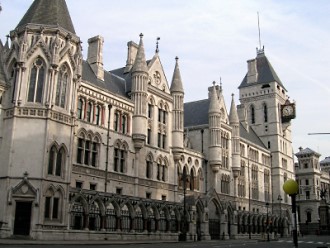Court ruling requires aspects of the policy to be amended to avoid imminent destitution
Deighton Pierce Glynn solicitors reported today that the High Court has ruled that the imposition of the 'no recourse to public funds' (NRPF) condition on migrants on the ten-year route to settlement is unlawful.
 Image credit: WikipediaAs we reported yesterday on EIN, the High Court heard a legal challenge brought by Deighton Pierce Glynn solicitors on behalf of a family affected by the NRPF policy. The Guardian had more on yesterday's hearing here.
Image credit: WikipediaAs we reported yesterday on EIN, the High Court heard a legal challenge brought by Deighton Pierce Glynn solicitors on behalf of a family affected by the NRPF policy. The Guardian had more on yesterday's hearing here.
Deighton Pierce Glynn announced today that the challenge had succeeded: "The judges ruled that the NRPF policy breaches Article 3 of the ECHR, which prohibits inhuman and degrading treatment. A detailed judgment and order will follow, which will set out the steps the Home Office needs to take to comply with the judges' ruling."
The oral ruling was delivered by Lord Justice Bean and Mr Justice Chamberlain. Project 17, who intervened in the case, provided the following text of the ruling:
"We have decided that the Claimaint succeeds on Ground 6 and that argument on the other grounds will therefore not be required.
That is, in brief, because the regime comprising the relevant Immigration Rules, in particular GEN 1.11A of Appendix FM, and the instructions to caseworkers, as presently formulated, does not adequately give effect to the obligations which the Secretary of State accepts are imposed on her by Article 3 of the European Convention on Human Rights, as interpreted by long-standing case law of the UK courts.
Our decision will not affect the ability of the Secretary of State to continue to make grants of leave to remain in the United Kingdom subject to a condition of "no recourse to public funds" in the normal run of cases.
It will, however, require aspects of the regime to be amended to make clear to caseworkers the circumstances in which they are obliged not to impose a condition of "no recourse to public funds", or to lift such a condition if it has already been imposed, in the case of a person who is not currently destitute but will imminently become so without access to public funds."
We have not made any order today and will not do so until we have prepared and sent out in draft the detailed reasons for our decision. We will at that point invite further submissions in writing, and if necessary hold a further hearing, to discuss the precise terms of the order."